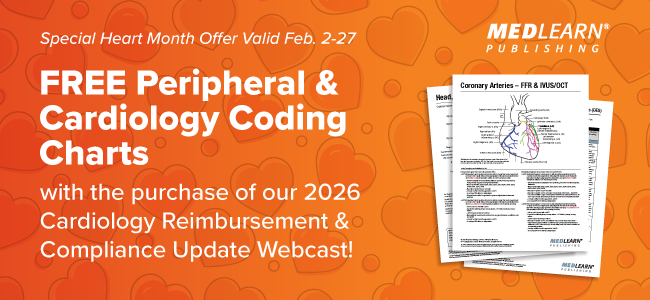Twice a year, at the ICD-10-CM Coordination and Maintenance Committee meetings, new codes are discussed and proposed for implementation. Many organizations attend in person to support submissions, often from physician specialty organizations and coding organizations. It’s your chance to make comments and review how these submissions might affect your facility or practice.
Last October, we had a ton of new code changes, which then led to some major scrambling to make them work in our practices. Even the smallest of changes can wreak havoc on our processes, cash flow, and bottom line. We saw that first-hand when many practices were not getting paid while payers rushed to adjust policies and systems.
Knowing what codes are proposed can help you streamline your efforts and prepare for any disruption. Here are some ways you can help your practice be successful.
1. Review the code changes proposed and determine how they may affect your practice.
For example, one of the new code change proposals would affect codes for blepharitis. The American Academy of Ophthalmology proposed new codes to include both eyelids. Blepharitis is impactful to practices because often there are medical policies associated with the condition that are tied to policies for other procedures. Many new policies actually emerged this year, causing payment hurdles.
The new codes proposed include:
H01 Other inflammation of eyelid
H01.0 Blepharitis
H01.00 Unspecified blepharitis
H01.004 Unspecified blepharitis, left upper eyelid
H01.005 Unspecified blepharitis, left lower eyelid
H01.006 Unspecified blepharitis, left eye, unspecified eyelid
H01.009 Unspecified blepharitis, unspecified eye, unspecified
eyelid
New code H01.00A Unspecified blepharitis, right eye, both eyelids
New code H01.00B Unspecified blepharitis, left eye, both eyelids
H01.01 Ulcerative blepharitis
New code H01.01A Ulcerative blepharitis, right eye, both eyelids
New code H01.01B Ulcerative blepharitis, left eye, both eyelids
H01.02 Squamous blepharitis
New code H01.02A Squamous blepharitis, right eye, both eyelids
New code H01.02B Squamous blepharitis, left eye, both eyelids
2. Review impacts to your documentation and make changes that may be needed. Make any critical alterations to all current templates in use to capture all necessary information.
In the above example with blepharitis, we want to make sure that the type of blepharitis is clearly documented, as well as laterality and anatomical location.
3. Review policies currently in play with health plans you are contracted with and how these changes may impact your policy. In this case, most policies in which blepharitis is mentioned are tied to other cosmetic-related procedures or as a rule-out, so careful documentation is important. Contact provider reps to see what changes may be coming.
4. Educate your physicians and staff on potential changes and impacts. This is vital to the success of the practice.
5. Participate in the conversations. There are
public comment periods on both the code set proposals as well as with the various new medical policies, such as local coverage determinations (LCDs).
Some other notable proposed improvements include codes for conditions such as breakthrough pain, brow ptosis, gall bladder disorders, and revisions for alternate mark inversion (AMI) coding. Careful research and proactive actions can keep your facility and practice healthy.























